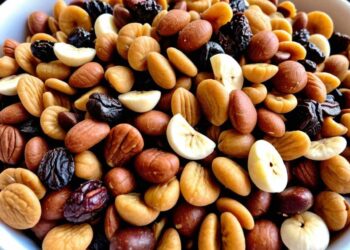Pickle juice has garnered attention as a potential remedy for dehydration, especially among athletes and fitness enthusiasts. While it may not be a common go-to solution, its unique properties can offer hydration benefits under specific circumstances. Let’s explore how pickle juice can aid in dehydration recovery and what to consider before using it.
What’s in Pickle Juice?
Pickle juice is primarily composed of water, vinegar, salt, and seasonings. Some versions contain additional ingredients like garlic, dill, or sugar. The key components that make it potentially useful for dehydration are sodium and potassium, two essential electrolytes that help maintain fluid balance in the body.
How Can Pickle Juice Help with Dehydration?
- Electrolyte Replenishment – Sodium and potassium are critical electrolytes that support nerve function, muscle contractions, and fluid retention. Since dehydration often leads to an electrolyte imbalance, consuming pickle juice can help restore these minerals quickly.
- Muscle Cramp Relief – Some studies suggest that pickle juice can alleviate muscle cramps within minutes. The high sodium content may trigger a reflex in the throat that reduces cramp duration, making it a favorite among athletes.
- Encourages Water Retention – The high salt concentration in pickle juice may help the body retain fluids, reducing the risk of further dehydration.
Potential Downsides
While pickle juice offers benefits, it’s not without drawbacks:
- High Sodium Content – Excess sodium intake can raise blood pressure and be harmful to individuals with hypertension or kidney issues.
- Acidic Nature – The vinegar in pickle juice can be harsh on the stomach, potentially causing acid reflux or irritation.
- Limited Hydration – Unlike water or electrolyte drinks, pickle juice alone does not provide sufficient hydration and should be paired with water intake.
When to Use Pickle Juice for Dehydration:
Pickle juice can be beneficial in specific situations, such as:
- After intense physical activity to prevent muscle cramps.
- In hot weather when excessive sweating leads to electrolyte loss.
- For individuals who experience frequent muscle cramps due to dehydration.
The Role of Electrolytes in Hydration:
Electrolytes are crucial for maintaining fluid balance in the body. Pickle juice contains high levels of sodium, one of the key electrolytes responsible for keeping your body hydrated. Sodium helps your body retain water, preventing excessive fluid loss after sweating. For athletes who engage in intense exercise, pickle juice can be an efficient way to replenish lost electrolytes.
Potassium: Another Key Electrolyte!
In addition to sodium, pickle juice also provides potassium, another important electrolyte. Potassium supports muscle function and ensures the balance of fluids in your cells. This makes pickle juice particularly useful for preventing muscle cramps, which often occur as a result of dehydration or an electrolyte imbalance during physical exertion.
The Benefits of Vinegar in Pickle Juice:
- Aids Digestion: Vinegar in pickle juice can stimulate stomach acids, which helps break down food more efficiently. This can contribute to better overall digestion, especially after meals.
- Helps Regulate Blood Sugar: Some studies suggest that vinegar may help stabilize blood sugar levels, which can prevent spikes and crashes in energy. This may be particularly useful for individuals with insulin resistance or those trying to manage their blood sugar levels.
- Promotes Gut Health: The acetic acid in vinegar is believed to encourage the growth of healthy bacteria in the gut, supporting a balanced microbiome. This can improve digestion and overall well-being.
- Indirect Hydration Support: While vinegar doesn’t directly hydrate the body, better digestion and more stable blood sugar levels can indirectly support overall hydration by improving bodily functions that help maintain fluid balance.
When to Use Pickle Juice for Dehydration:
Pickle juice is often used by athletes after physical activity, particularly in situations where they’ve sweated heavily and lost significant amounts of electrolytes. The sodium and potassium in pickle juice make it a quick option for rehydrating and reducing the likelihood of muscle cramps. If you’ve been out in hot weather or have engaged in intense exercise, a small amount of pickle juice can help you recover.
Risks and Considerations:
While pickle juice offers hydration benefits in certain scenarios, it should be consumed in moderation. The high sodium content can be problematic for people with high blood pressure, kidney issues, or heart disease. It’s important to avoid overconsumption, as too much sodium can lead to further dehydration and other health complications.
For everyday hydration, drinking water is still the best and most reliable option. Pickle juice should be seen as a supplemental tool for rehydration, rather than a primary source of hydration.
FAQs:
How Much Pickle Juice to Drink for Dehydration?
A small amount, about 1 to 2 ounces, is enough to help with dehydration. Drinking too much can lead to excess sodium intake.
Who Should Not Drink Pickle Juice?
People with high blood pressure, kidney disease, or heart problems should avoid pickle juice due to its high sodium content.
What Organ Is Pickle Juice Good For?
Pickle juice can help support kidney function by balancing electrolytes, but it should be consumed in moderation.
Are Pickles Good When Dehydrated?
Pickles can help with hydration by providing electrolytes, but they should not replace water for rehydration.
Conclusion: Is Pickle Juice Right for You?
Pickle juice can be an effective and quick way to replenish lost electrolytes in cases of dehydration, particularly after intense physical activity. It offers sodium and potassium, which are essential for fluid balance and muscle function. However, it is not a substitute for regular water intake and should be consumed in moderation. Always consider your individual health conditions before incorporating pickle juice into your hydration routine.
AlsoRead:









Discussion about this post